|
|
|
|
Nau mai haere mai, welcome to this week’s newsletter.
If you read one thing about the just released Emissions Reduction Plan, make it David Hall’s masterful critical analysis published here today. The final in our pre-budget series, it casts a measured but sceptical eye over the plan and concludes that, while it’s full of good intentions, it’s also a missed opportunity.
As Hall and his co-authors write, “Climate action was always fundamentally about politics. The ERP practices the arts of acceptability but neglects the art of the possible – of making ambitious commitments and bringing the people along.”
It’s not to say the ERP is a failure. In fact, it’s main triumph may lie in its being “unique, even unprecedented, by taking a whole-of-government approach, weaving together all core government departments in a 340-page report.”
But while tomorrow’s budget may reveal some extra spending, the ERP is now a known quantity, one that talks a lot about planning and investigating and exploring, but hasn’t delivered the kinds of committed actions demanded by an accelerating climate crisis.
We’ve gathered all the past week’s budget analysis here, covering everything from public health to public transport, the arts to poverty reduction. And we’ll be publishing more on and after budget day itself. Until then, take care and mā te wā.
|

|
Finlay Macdonald
Senior Editor, New Zealand
|
|

David Hall, Auckland University of Technology; Melody Meng, Auckland University of Technology; Nina Ives, Auckland University of Technology
The budget will reveal some extra spending, but the Emissions Reduction Plan still treats climate change as merely a scientific, technical problem – when it has been a political problem all along.
|
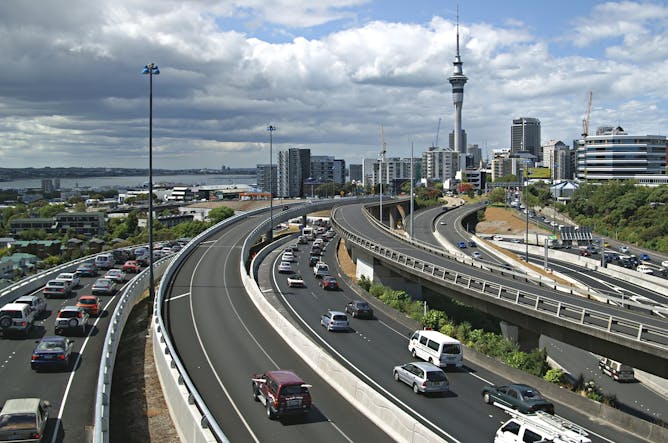
Timothy Welch, University of Auckland
Tackling climate change is a budget priority, but will we see the major investment in cycling infrastructure and public transport that is one obvious solution?
|

Kate C. Prickett, Te Herenga Waka — Victoria University of Wellington
Poverty reduction targets have largely failed to account for the pandemic or the cost of living crisis. This week’s budget seems unlikely to change that.
|

Johanna Reidy, University of Otago; Don Matheson, Griffith University; Rhema Vaithianathan, Auckland University of Technology
Public health remains the Cinderella of services when it comes to health budgets. But the pandemic has shown why New Zealand urgently needs a better investment approach.
|

Mark Harvey, University of Auckland; Molly Mullen, University of Auckland
Art has value well beyond the financial, including proven health and well-being benefits. It’s time this was recognised in the way the sector is funded.
|

Lisa Marriott, Te Herenga Waka — Victoria University of Wellington
A wealth tax has long been in the too hard basket for successive governments, but it’s time to take it out and properly debate the fairness of the current system.
|
Other top stories
|

Stephen Hickson, University of Canterbury
The call for GST exemptions on food is a regular feature of New Zealand politics, but it’s far from the simple cost of living solution many seem to think it is.
| |
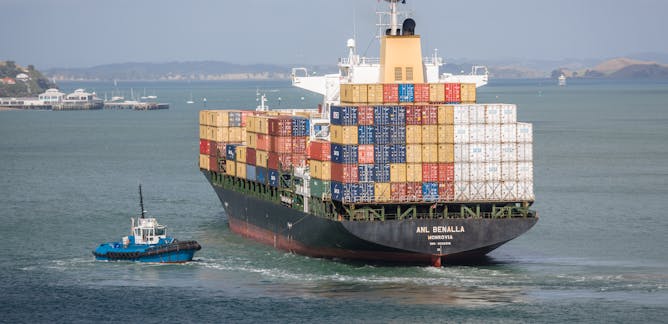
Olga Dodd, Auckland University of Technology; Adrian Fernandez-Perez, Auckland University of Technology; Simon Sosvilla-Rivero, Universidad Complutense de Madrid
Russia’s war has had an unexpected impact on global trade patterns, raising the price on goods but weakening currencies. What’s behind this unexpected blip?
|

David Dempsey, University of Canterbury; Karan Titus, University of Canterbury; Rebecca Peer, University of Canterbury
Our research shows NZ’s potential to burn forestry waste and capture the emissions in geothermal wells. But we’ll need new partnerships between power generators, manufacturers and the forestry sector.
| |
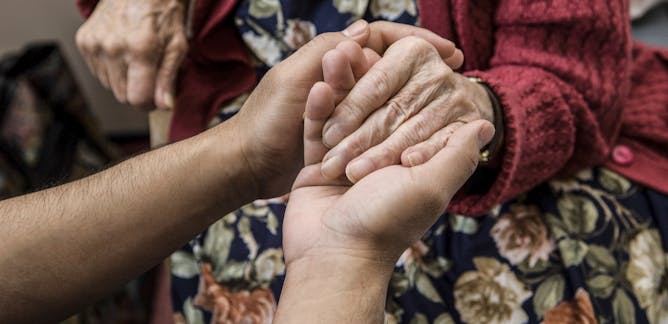
Katherine Ravenswood, Auckland University of Technology
Ahead of the 2022 budget, the government is investing in male-dominated apprenticeships rather than women-dominated care roles. Has anything really changed in how we value the work of women?
|
|
|
From our foreign editions
|
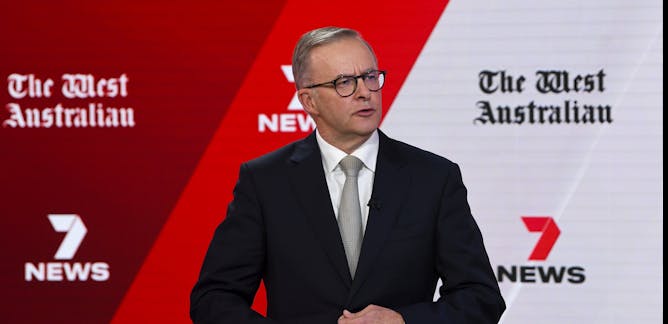
Paul Strangio, Monash University
Unlike many politicians, Albanese does not appear to harbour a sense of entitlement to the top job - and his journey there has been a long one.
| |
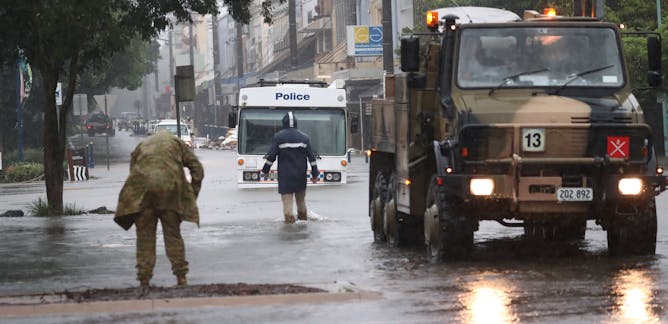
Markus A. Höllerer, UNSW Sydney; Graham Dwyer, Swinburne University of Technology; Jaco Fourie, UNSW Sydney; Paul Spee, The University of Queensland
The federal election presents an opportunity to promote plans for improving national disaster governance and resilience. But the silence on these issues in political debates has been remarkable.
|

Dion Kagan, La Trobe University
One of the first contemporary personal narratives about living with HIV in the 21st century, Fever urgently interrogates the social meanings of HIV, and how they’ve evolved in the era of treatment.
| |

Jillian Peterson, Hamline University ; James Densley, Metropolitan State University
A suspect apparently motivated by a white supremacist agenda shot dead 10 shoppers. Analysis shows that mass shootings – and those at grocery stores – are on the rise.
|

Vanessa Brown, Nottingham Trent University
More is more in #cluttercore, the new interior trend championed by the young maximalists of TikTok.
| |

Nora McDonald, University of Cincinnati
Data privacy is an abstract issue for most people, even though virtually everyone is at risk. If abortion becomes illegal, digital surveillance could take an even darker turn.
|
|
|
| |
| |
| |
| |
|
|
|
|
|
|
|